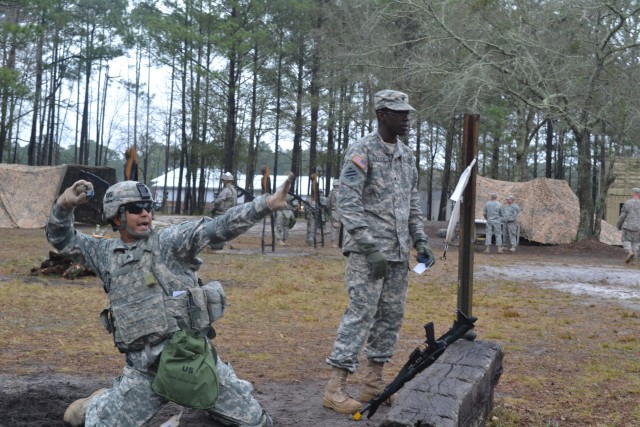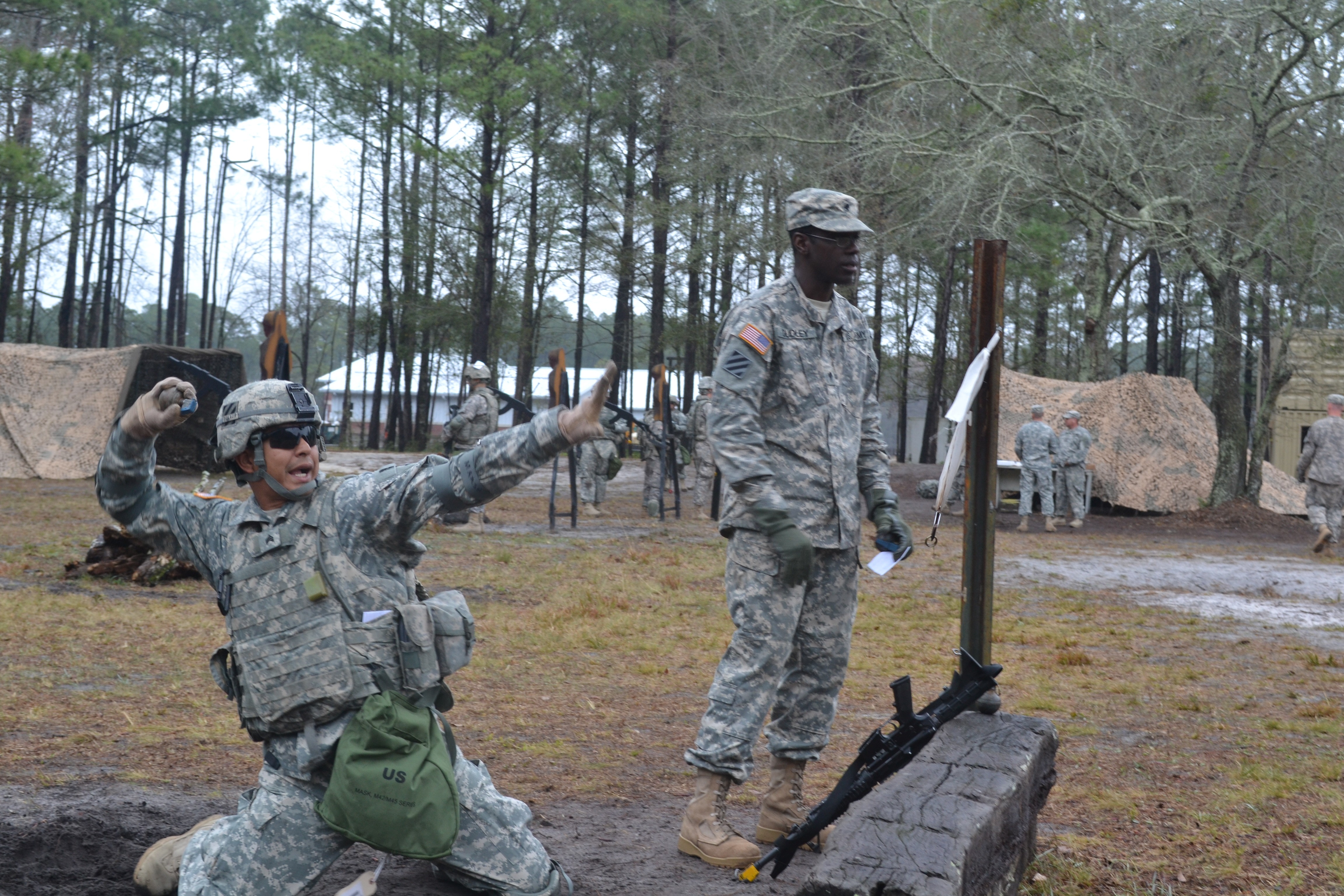FORT STEWART, Ga. - "Fit to fight."
These words describe today's model U.S. Army Soldier. Whether it's carrying a battle buddy to safety or low-crawling for 100 yards, the world's greatest Soldiers are expected to stay combat-ready at all times.
Second Heavy Brigade Combat Team, 3rd Infantry Division "Spartan" Soldiers capitalized on combat-readiness during their annual brigade-wide training/field exercise, Spartan Stakes held Feb. 15 - March 25 on Fort Stewart.
The training event included, but was not limited to: practice and familiarization on several types of weaponry, physical endurance, combat-lifesaver skills, and mock deployment scenarios.
Sergeant First Class Michael Ospina, Bravo Company, 1st Battalion, 64th Armored Regiment, and non-commissioned officer in charge of the training, said events like Spartan Stakes keeps 2nd HBCT Soldiers on their toes.
"Anytime Soldiers get a chance to actually get hands-on training with weapons or to freshen up on skills like first aid, it strengthens that individual Soldier as well as the unit," said the Sgt. 1st Class Ospina.
The brigade-wide training, according to Staff Sgt. Nicholas Burken, B Co., 1/64 Armor, also keeps all Spartan Soldiers on one accord.
"This is my second time participating in Spartan Stakes, and I feel exactly as I did the first time ... this training is very necessary," Staff Sgt. Burken said. "It gets all Soldiers across the entire brigade to uphold the same standard. That way, when we have Soldiers from, maybe 3-7 Cav. (3rd Squadron, 7th Cavalry,) attached to maybe 2-3 (2-3 Brigade Support Battalion), everyone is on the same page, which makes accomplishing the mission much easier."
Private First Class Caitrin Underwood, B Co., 2-3 BTB, said participating in the training was extremely beneficial for herself and other fairly new Soldiers.
"Most of the time, our training is very MOS (military occupational specialty) specific, so we rarely focus on basic soldiering skills except during Sergeant's Time Training on Thursdays," Pfc. Underwood said. "The instructors out here were very good. They took their time to bring us up to speed on things that we haven't really had much hands-on training with since basic."
Staff Sergeant Burken said the training may have been especially helpful to young Soldiers, but it was also useful to older, more experienced Soldiers.
"The training stations out here obviously helped the new Soldiers, but they served as a refresher course for the older Soldiers as well," he said. "No matter how far you go up in the ranks, I just don't think good training ever gets old."


Social Sharing